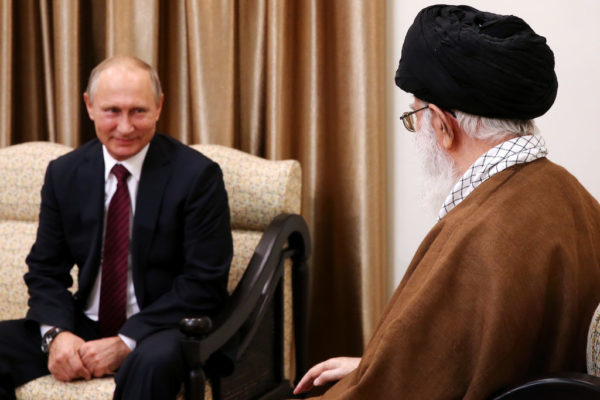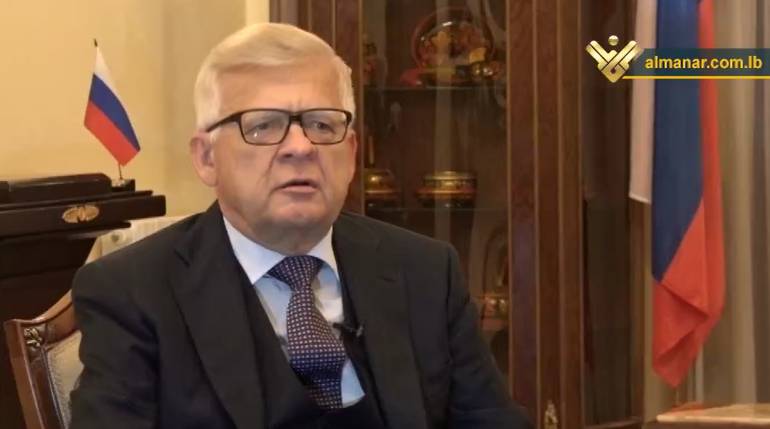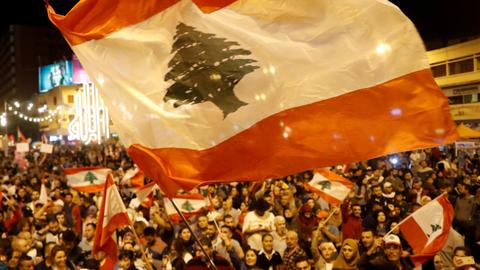By Ali Hussein
The 2019 Lebanese uprising that began on October 17 is a series of country-wide, non-sectarian protests. In the short term, the protests are motivated by the Lebanese government’s failure to find solutions to an economic crisis that has been looming for the past year. In the long term, they constitute a reaction against sectarian rule, endemic corruption in the public sector, legislation (such as banking secrecy) that is perceived to shield the ruling class from accountability and failures from the government to provide basic services such as electricity, water and sanitation.

Prime Minister Saad Hariri‘s resignation of his government was in response to the protests. Protests have since continued and are calling for the resignation of the entire political class, including Speaker of Parliament Nabih Berri and President Michel Aoun. They are are also calling for a transitional government of Technocrats that will arrange for new parliamentary elections based on a new nonsectarian electoral law
According to an article by the highly respected Lebanese Journalist Raghida Dergham , Founder and Executive Chairman of Beirut Institute , Russia’s leadership has been siding with the ruling class in Lebanon ever since the uprising began. At the Paris Peace Forum, foreign minster Sergey Lavrov dismissed a key demand of the uprising, namely to form a technocratic government with no career politicians, saying it was “unrealistic”. He expressed implicit support for Hezbollah’s position of forming a government of politicians combined with technocrats,

Russian ambassador to Lebanon Alexander Zaspikin has also been very outspoken against the formation of a technocratic government and warned yesterday that the demand for such a government is aimed at sidelining Hezbollah . He accused the US of siding with the protesters in Lebanon

According to Russian sources, Moscow sees the discord in Lebanon as a threat to its efforts to stabilise Syria, where it faces a complex mission with no guarantee of success. It sees Hezbollah and Iran as easier to deal with than the Lebanese army, say the sources. Perhaps it is Washington’s ties with the army that frustrate Moscow but there is a risk that in supporting Iran’s influence in Lebanon, Russia is jeopardising Lebanon’s sovereignty.
The sources revealed Tehran had given Moscow promises to pacify the situation and restore normality to the country by putting an end to the protests, adding that instability in Lebanon was not in the Russian interest.
The so called axis of resistance has claimed it now commands a bigger bloc of supporters than the protesters. But such a bloc would not represent either Lebanon’s independence or its national army. Lebanese President Michel Aoun, who has long spoken of his support for the national army, is today hostage to his affiliation to the axis. Indeed, by condoning the Iranian project in Lebanon, he has undermined his own country’s sovereignty and the army he once led. Iran and Hezbollah do not want to allow the national army to lead so the president must remember his oath of allegiance instead of being a silent witness to the attack on his country by Iran.
The president must reassure his people that he is not simply a puppet of the axis of resistance and do everything he can to restore confidence and prevent the Islamic Revolutionary Guard Corps in Iran from turning a peaceful uprising into a bloody confrontation. So far he has failed to conduct the parliamentary consultations in order to designate a prime minister who would form the new cabinet . Instead he has been unsuccessfully trying to form a cabinet with the intention of imposing it on the new PM designate. Hezbollah is reportedly the force behind the move, but denies it .

Lebanon has become an arena for the Iranian regime’s battle for influence and survival. This regime sees uprisings as a threat to its projects, even when they are primarily challenging corruption. Washington, meanwhile, sees Lebanon as a key factor in its bid to block Iran’s schemes. Iran is now vulnerable in Iraq, Syria and Yemen as well as at home, where recent protests in several major cities and towns have erupted against the regime’s authoritarianism, and the hardship and isolation that have resulted from corruption, mismanagement of priorities and the US sanctions
The whole world including Iran and Russia should by now be aware that the Lebanese army is the only protecter of the Lebanese people and is the country’s only safety valve. Time for the Lebanese president to forgo his political alliances and choose Lebanon over Iran.

Leave a Reply
You must be logged in to post a comment.